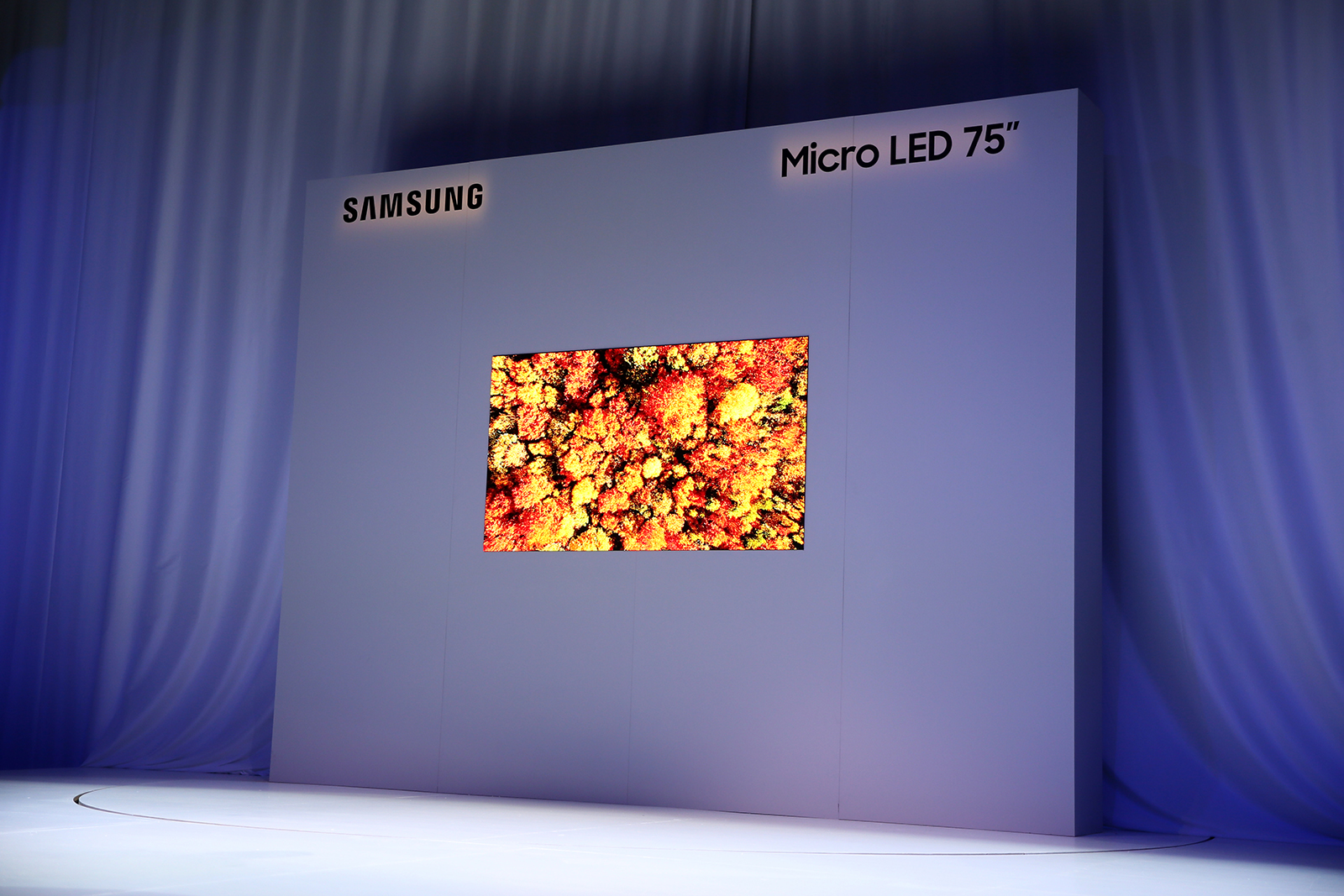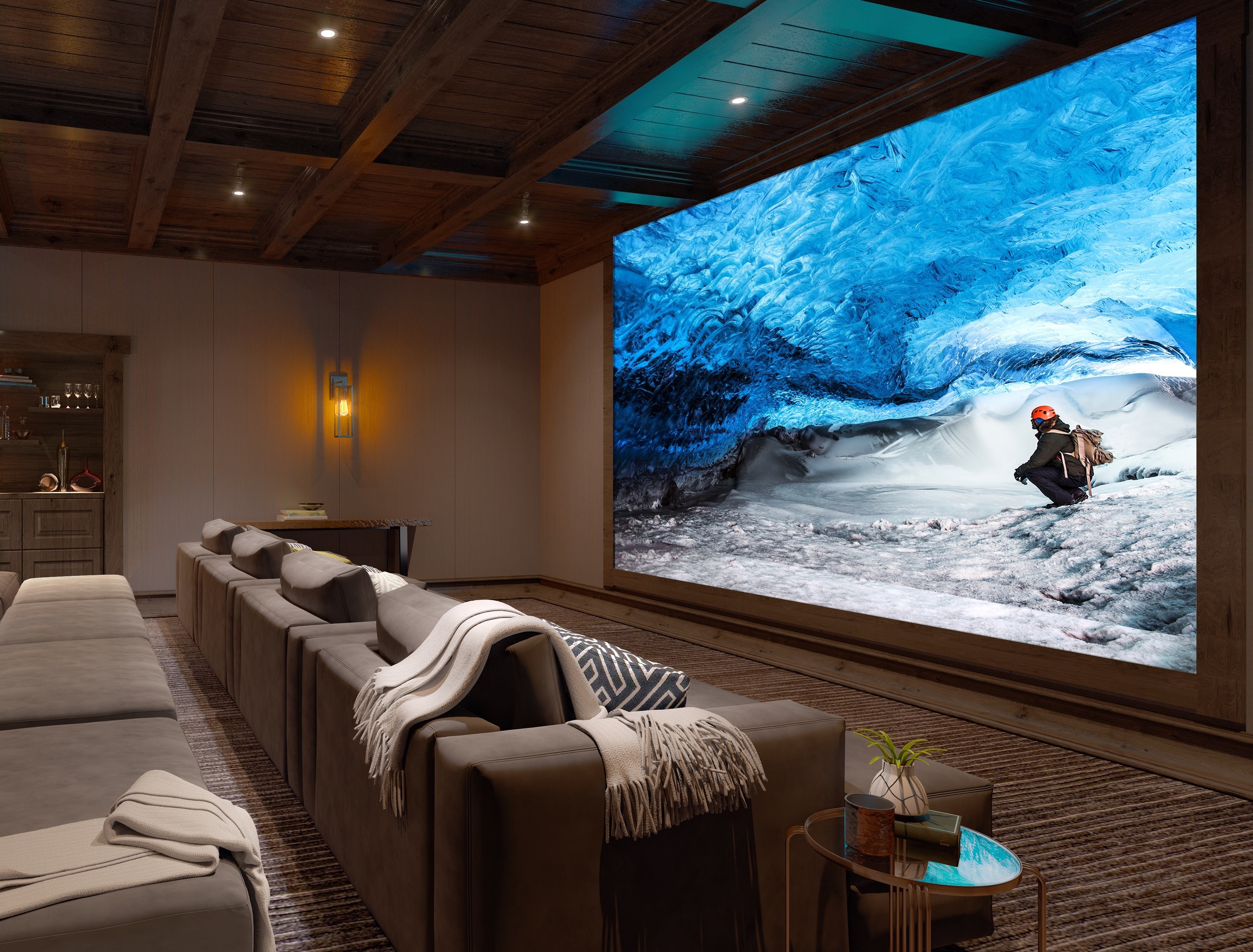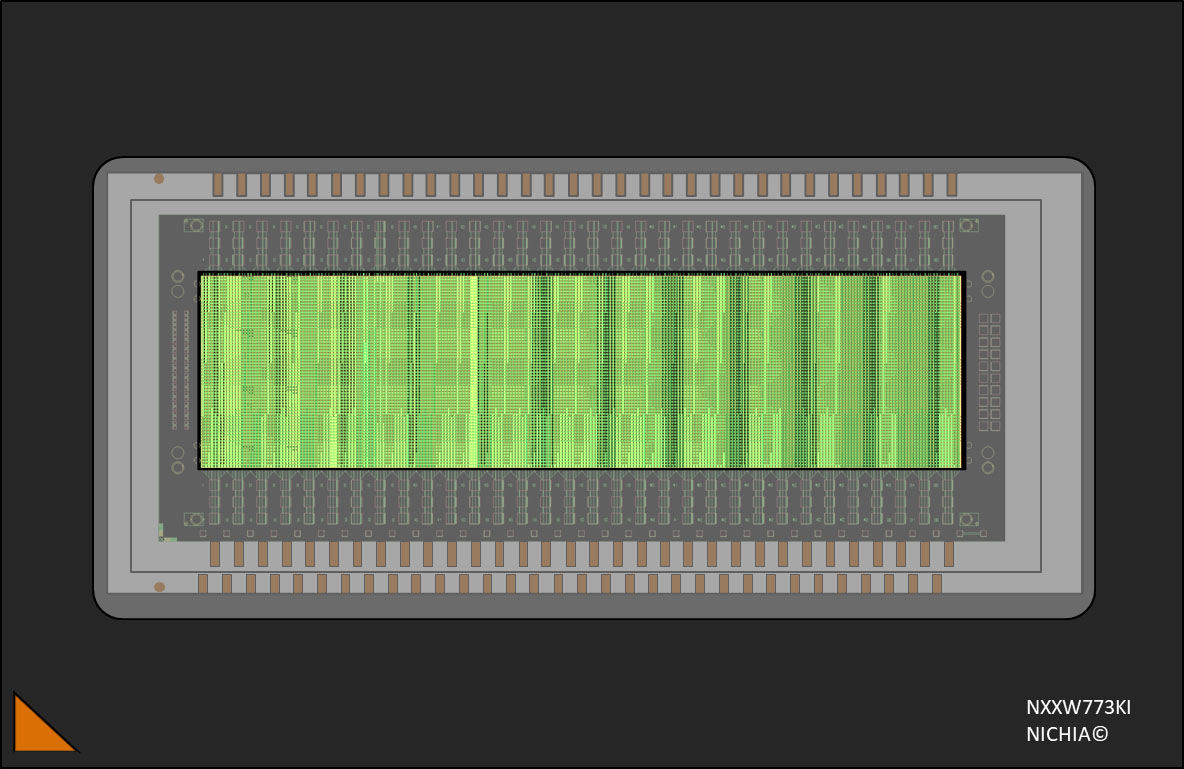The year of 2019 was a fruitful year for Micro LED as the technology entering a more mature stage with increasing global manufacturers announcing their progresses and updates in Micro LED applications.
LEDinside pointed out in its “2019 Micro LED Next Generation Display Key Technology Report,” that with outstanding performance in brightness, contrast, response time and energy saving, Micro LED technology might out beat LCD and OLED and be adopted in wearable applications, automotive displays, AR/VR and large displays.
In the past year, many of the Micro LED applications mentioned above have been demonstrated and more innovative products are expected at the coming big event CES 2020.
Before new technologies show up, LEDinside picked the top 10 Micro LED news in 2019 for our reader to quickly review the progresses of the next-gen technology in the past year.
1. Samsung Reveals 75-inch Micro LED Display at CES 2019
In January 2019, Samsung presented a new Micro LED display at First Look CES, following “The Wall” revealed in CES 2018. The 75-inch Micro LED display used chips that are only 1/15 in size comparing to the 2018 version and its ppi was four times higher. The Micro LED chips were supplied by Taiwan’s PlayNitride.

(Image: Samsung)
2. Sony Installs 16K Micro LED Display in Japan and Offers Home Installation
Sony announced the installation of a 16K Micro LED display with its Crystal LED technology in Japan in April 2019 at NAB. The screen was set up in the new research center of the Shiseido Group.

(Image: Sony)
Later in September, Sony launched residential configurations and installation of its CLEDIS Micro LED display module. However, it costs round US$720,000 for a 4K screen and the 16K display would be US$ 5.76 million.
3. Plessey Develops Micro LED Display with 2.5µm Pixel Pitch and Full Color LEDs
The British Micro LED specialist Plessey continues its technology progresses in Micro LED. In September, the company reported the achievement of producing a 2.5 µm Micro LED display for AR/VR devices which consumes only 20% of energy compared to conventional LCOS or DLP display.

(Image: Plessey)
Plessey also works on full color Micro LED technology. It has achieved native blue and green LED on the same epitaxy wafer with GaN on Silicon process in October and announced the development of the world’s first native InGaN LEDs on silicon in December.
4. Micro LED Enters Automotive Lighting with Nichia, Osram and Hella Announcing New Developments
Apart from display applications, Micro LED has also been adopted for automotive lighting to create innovative applications including projecting images, road marks and other information to enhance safety.
In September, Japan’s LED company Nichia announced its partnership with Infineon for the development of a HD light engine with more than 16,000 Micro LEDs for automotive headlight applications.

(Image: Nichia)
Soon after the announcement of Nichia, Osram also reported that it has begun the development of the second generation of its hybrid LED “Eviyos” featuring 25,600 pixels on a LED chip with pixel pitch of 40µm, which fits the standard of Micro LED despite that Osram did not mention it.
Last month, automotive lighting solution provider Hella revealed that it is launching a new high resolution lighting system with more than 30,000 pixels in a light source. The new system, comparing to the light of Nichia and Osram, integrates even more pixel in one light, marking the involvement of Micro LED technology in automotive headlight design.
5. China’s Sanan Invest US$ 1.7 Billion in Micro/Mini LED and to Begin 6-inch Micro LED Wafer Production
The largest LED chip manufacturer in China, Sanan Optoeletronics, announced in April 2019 that it will invest RMB 12 billion (US$1.71 million) in Micro LED and Mini LED wafer and chip development and production in China’s Hubei Province.
By November, Sanan was said to begin 6-inch LED wafer production for chips of 10*20µm and aiming to further shrink the chip size. The rumor went in line with the company’s plan in 2018 to begin Micro LED wafer and chip production in 2019.





 CN
TW
EN
CN
TW
EN









